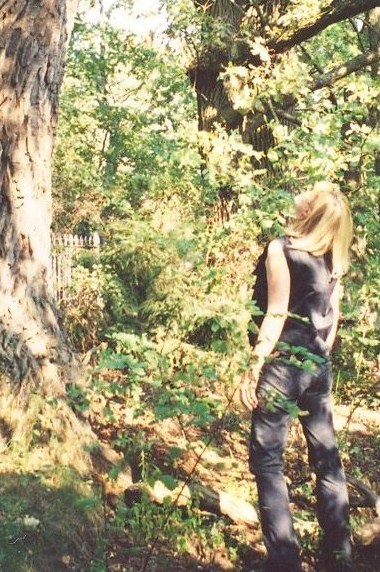As Japan races to regain control of its multiple nuclear disasters at Fukushima Daiichi, the talking heads and internets are buzzing with reignited passions over nuclear energy. After climate change fueled renewed interest in low-carbon nuclear, Fukushima's melting reactor cores have viscerally reminded everyone about the only two civilian nuclear accidents with which the Japanese emergency can be compared: Three Mile Island and Chernobyl.
That is a good thing. Nuclear power is extremely safe and reliable, except when it isn't -- and that requires serious consideration. Judging by past nuclear disasters and what has already happened at Fukushima, we can probably expect a catastrophic system failure at a nuclear facility every decade or two. In some cases, the radiation will not be contained, leading to permanent evacuations with huge economic consequences and environmental effects. Some, like Chernobyl, will have measurable health effects. Due to timely evacuations and kindly winds, Fukushima's radiation release may not measurably affect the general population, though the underpaid Japanese contract workers bravely fighting the reactors are taking the blow for them.
The debates over whether those and similar scenarios are an acceptable price to pay for reducing reliance on fossil fuels often boil down to whether we are going to pollute the planet with carbon or radioactivity, with proponents of each arguing that the other is worse. But comparing climate change to even the worst case disasters that happened at Chernobyl (and is already happening at Fukushima, with the government preparing for the permanent evacuation of the 12-mile zone around the reactor) leads to some interesting parallels.
At first glance, the April 1986 disaster in Soviet Ukraine that spewed radiation around the globe and forced the permanent evacuation of 120,000 people from an area the size of Rhode Island could not seem more different from carbon causing global warming. For one thing, carbon is critical to life as we know it. It's "natural". Radiation seems an inherently artificial and dangerous contaminant in comparison, especially the highly radioactive products of fission -- like plutonium -- that don't exist in nature.
Chernobyl exploded into global consciousness, resonating deeply in Cold War imaginations haunted by the specter of nuclear annihilation. No one could deny that it was a major catastrophe. Even the Soviet Union was finally forced to tell the truth, probably for the first time in history and in a likely cause of its later collapse. Global warming seems so the opposite of an explosion. Earth's warming has been so gradual and subtle that climate change denial even has an entire (Republican) political party and (Fox) cable news channel promoting it.
Had I not made more than 25 trips to the Chernobyl exclusion zone, I'm sure I would not have seen the parallels between nuclear disaster and climate change when I was in Cancun for the last UN climate summit and heard the news of progress on REDD+, a proposed scheme for rich countries to pay poor countries to reduce carbon emissions by protecting their tropical forests.
Living forests lock up huge stores of carbon and deforestation doesn't only release that carbon into the atmosphere. The missing trees can no longer act as the planet's "lungs" for removing other carbon from the atmosphere. Deforestation releases the annual carbon equivalent of burning fossil fuels and stopping it is one of the quickest and cheapest ways to reduce emissions.
Now including Fukushima, nuclear disasters have spewed the radiation equivalent of dozens and dozens of Hiroshima bombs into the atmosphere. Industrial activity has spewed 35% more carbon into the atmosphere compared to preindustrial levels. Both nuclear and carbon fuels have caused untold human, social, political and economic hardship; and will have permanent effects on the planet for all imaginable time. Both have caused the greatest man-made disasters in human history.
Radiation and carbon are also invisible to the naked eye. Without special equipment, it's impossible to know how much carbon is in the atmosphere or how much radiation is in that spot of moss you're standing on in Chernobyl. But when dangerous things are invisible, you don't want them floating around freely.
The best thing to do with both carbon and radioactive atoms is to lock them up, and the best place to do that is in trees. Like the carbon that tropical forests take in from the atmosphere, radioactive atoms get absorbed by Chernobyl trees, where they can safely decay away in the centuries of the trees' lifetime.
The radioactive no-man's lands surrounding Chernobyl and now Fukushima remind us that all forms of energy have a price: be it trapped Bolivian miners, BP oil spills, two Iraq wars, nuclear waste, radioactive no man's lands -- or climate change
Perhaps the most profound parallel between nuclear disasters and climate change is that both demonstrate how the greatest damage we do isn't to the Earth, but to ourselves. Like the radioactive exclusion zones around Chernobyl and Fukushima, vast areas of the globe will become uninhabitable in the future because of rising sea levels and extreme weather.
Chernobyl is already there and, in the absence of people, it has become Europe's largest wildlife sanctuary, its lush woodlands teeming with large animals and endangered birds. They are all radioactive. But most species are also thriving. Something similar may appear in Japan, though at much higher price for a small island nation.
So, too, the places abandoned because of climate change will revert to a natural state in the absence of people. It won't be the same state as before global warming. But I suspect that Earth will probably do just fine with warmer temperatures, like Chernobyl and now maybe Fukushima will do just fine as a radioactive wilderness.
(Note: You can view every article as one long page if you sign up as an Advocate Member, or higher).





